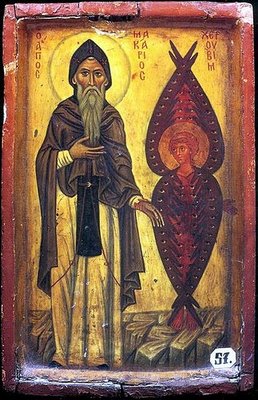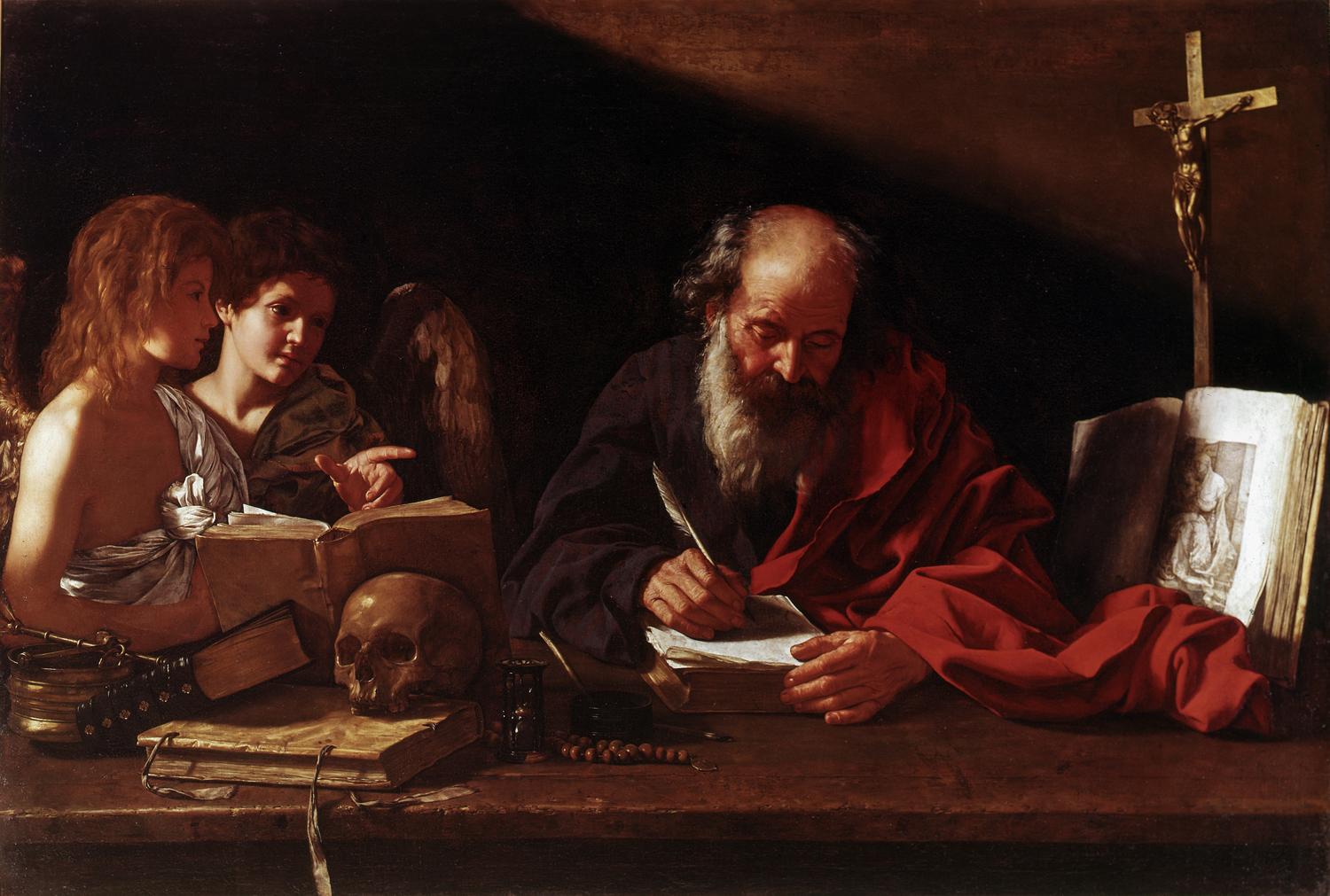|
Zachariah The Recluse
Venerable Zachariah the Recluse of Egypt was an Egyptian Christian monk who lived during the 4th century in Scetis, Lower Egypt. He is the patron saint of society's outcasts. He served the homeless and poor, and is remembered as a Christian monasticism, monastic father. His father, Carion the Egyptian, left his wife and two children to become a monk in Scetis. Zacharias was later sent to Scetis to become a monk with his father during a famine. Venerable Zachariah the Recluse is commemorated 24 March in the Eastern Orthodox Church. See also *Hermit *Poustinia *Desert Fathers *Coptic Orthodox ChurchReferences [...More Info...] [...Related Items...] OR: [Wikipedia] [Google] [Baidu] |
Egypt
Egypt ( , ), officially the Arab Republic of Egypt, is a country spanning the Northeast Africa, northeast corner of Africa and Western Asia, southwest corner of Asia via the Sinai Peninsula. It is bordered by the Mediterranean Sea to northern coast of Egypt, the north, the Gaza Strip of Palestine and Israel to Egypt–Israel barrier, the northeast, the Red Sea to the east, Sudan to Egypt–Sudan border, the south, and Libya to Egypt–Libya border, the west; the Gulf of Aqaba in the northeast separates Egypt from Jordan and Saudi Arabia. Cairo is the capital, list of cities and towns in Egypt, largest city, and leading cultural center, while Alexandria is the second-largest city and an important hub of industry and tourism. With over 109 million inhabitants, Egypt is the List of African countries by population, third-most populous country in Africa and List of countries and dependencies by population, 15th-most populated in the world. Egypt has one of the longest histories o ... [...More Info...] [...Related Items...] OR: [Wikipedia] [Google] [Baidu] |
Desert Fathers
The Desert Fathers were early Christian hermits and ascetics, who lived primarily in the Wadi El Natrun, then known as ''Skete'', in Roman Egypt, beginning around the Christianity in the ante-Nicene period, third century. The ''Sayings of the Desert Fathers'' is a collection of the wisdom of some of the early desert monks and nuns. The first Desert Father was Paul of Thebes. The most well-known Anthony the Great, who moved to the desert in 270–271 and became known as both the father and founder of desert monasticism. By the time Anthony had died in 356, thousands of monks and nuns had been drawn to live in the desert following Anthony's example, leading his biographer, Athanasius of Alexandria, to write that "the desert had become a city." The Desert Fathers significantly influenced the development of Christianity. The desert monastic communities that grew out of the informal gathering of hermit monks became the model for Christian monasticism, first influencing the Coptic Ortho ... [...More Info...] [...Related Items...] OR: [Wikipedia] [Google] [Baidu] |
Eastern Catholic Monks
Eastern or Easterns may refer to: Transportation Airlines *China Eastern Airlines, a current Chinese airline based in Shanghai * Eastern Air, former name of Zambia Skyways *Eastern Air Lines, a defunct American airline that operated from 1926 to 1991 *Eastern Air Lines (2015), an American airline that began operations in 2015 *Eastern Airlines, LLC, previously Dynamic International Airways, a U.S. airline founded in 2010 *Eastern Airways, an English/British regional airline *Eastern Provincial Airways, a defunct Canadian airline that operated from 1949 to 1986 Roads *Eastern Avenue (other), various roads *Eastern Parkway (other), various parkways *Eastern Freeway, Melbourne, Australia *Eastern Freeway Mumbai, Mumbai, India Other *Eastern Railway (other), various railroads *, a cargo liner in service 1946-65 Education *Eastern University (other) *Eastern College (other) Sports * Easterns (cricket team), South African cri ... [...More Info...] [...Related Items...] OR: [Wikipedia] [Google] [Baidu] |
Egyptian Christian Monks
''Egyptian'' describes something of, from, or related to Egypt. Egyptian or Egyptians may refer to: Nations and ethnic groups * Egyptians, a national group in North Africa ** Egyptian culture, a complex and stable culture with thousands of years of recorded history ** Egyptian cuisine, the local culinary traditions of Egypt * Egypt, the modern country in northeastern Africa ** Egyptian Arabic, the language spoken in contemporary Egypt ** A citizen of Egypt; see Demographics of Egypt * Ancient Egypt, a civilization from c. 3200 BC to 343 BC ** Ancient Egyptians, ethnic people of ancient Egypt ** Ancient Egyptian architecture, the architectural structure style ** Ancient Egyptian cuisine, the cuisine of ancient Egypt ** Egyptian language, the oldest known language of Egypt and a branch of the Afroasiatic language family * Copts, the ethnic Egyptian Christian minority ** Coptic language or Coptic Egyptian, the latest stage of the Egyptian language, spoken in Egypt until the 17th cen ... [...More Info...] [...Related Items...] OR: [Wikipedia] [Google] [Baidu] |
4th-century Births
The 4th century was the time period from 301 CE (represented by the Roman numerals CCCI) to 400 CE (CD) in accordance with the Julian calendar. In the West, the early part of the century was shaped by Constantine the Great, who became the first Roman emperor to adopt Christianity. Gaining sole reign of the empire, he is also noted for re-establishing a single imperial capital, choosing the site of ancient Byzantium in 330 (over the current capitals, which had effectively been changed by Diocletian's reforms to Milan in the West, and Nicomedeia in the East) to build the city soon called Nova Roma (New Rome); it was later renamed Constantinople in his honor. The last emperor to control both the eastern and western halves of the empire was Theodosius I. As the century progressed after his death, it became increasingly apparent that the empire had changed in many ways since the time of Augustus. The two-emperor system originally established by Diocletian in the previous century fel ... [...More Info...] [...Related Items...] OR: [Wikipedia] [Google] [Baidu] |
Christian Ascetics
A Christian () is a person who follows or adheres to Christianity, a monotheistic Abrahamic religion based on the life and teachings of Jesus Christ. Christians form the largest religious community in the world. The words ''Christ'' and ''Christian'' derive from the Koine Greek title (), a translation of the Biblical Hebrew term ''mashiach'' () (usually rendered as ''messiah'' in English). While there are diverse interpretations of Christianity which sometimes conflict, they are united in believing that Jesus has a unique significance. The term ''Christian'' used as an adjective is descriptive of anything associated with Christianity or Christian churches, or in a proverbial sense "all that is noble, and good, and Christ-like." According to a 2011 Pew Research Center survey, there were 2.3 billion Christians around the world, up from about 600 million in 1910. Today, about 37% of all Christians live in the Americas, about 26% live in Europe, 24% live in sub-Saharan Africa, ab ... [...More Info...] [...Related Items...] OR: [Wikipedia] [Google] [Baidu] |
Coptic Orthodox Church
The Coptic Orthodox Church (), also known as the Coptic Orthodox Patriarchate of Alexandria, is an Oriental Orthodox Christian church based in Egypt. The head of the church and the See of Alexandria is the pope of Alexandria on the Holy Apostolic See of Saint Mark, who also carries the title of Father of fathers, Shepherd of shepherds, Ecumenical Judge and the 13th among the Apostles. The See of Alexandria is titular. The Coptic pope presides from Saint Mark's Coptic Orthodox Cathedral in the Abbassia District in Cairo. The church follows the Coptic Rite for its liturgy, prayer and devotional patrimony. Adherents of the Coptic Orthodox Church make up Egypt's largest and most significant minority population, and the largest population of Christians in the Middle East and North Africa (MENA). They make up the largest share of the approximately 10 million Christians in Egypt. The Coptic Orthodox Church was established by Saint Mark, an apostle and evangelist, during th ... [...More Info...] [...Related Items...] OR: [Wikipedia] [Google] [Baidu] |
Poustinia
A hermitage most authentically refers to a place where a hermit lives in seclusion from the world, or a building or settlement where a person or a group of people lived religiously, in seclusion. Particularly as a name or part of the name of properties its meaning is often imprecise, harking to a distant period of local history, components of the building material, or recalling any former sanctuary or holy place. Secondary churches or establishments run from a monastery were often called "hermitages". In the 18th century, some owners of English country houses adorned their gardens with a "hermitage", sometimes a Gothic ruin, but sometimes, as at Painshill Park, a romantic hut which a "hermit" was recruited to occupy. The so-called Ermita de San Pelayo y San Isidoro is the ruins of a Romanesque church of Ávila, Spain, that ended up several hundred miles away, to feature in the Buen Retiro Park in Madrid. Western Christian tradition A hermitage is any type of domestic dwe ... [...More Info...] [...Related Items...] OR: [Wikipedia] [Google] [Baidu] |
Scetes
Wadi El Natrun (Arabic: "Valley of Natron"; , "measure of the hearts") is a depression in northern Egypt that is located below sea level and below the Nile River level. The valley contains several alkaline lakes, natron-rich salt deposits, salt marshes and freshwater marshes. In Christian literature it is usually known as Scetis ( in Hellenistic Greek) or Skete (, plural in ecclesiastical Greek). It is one of the three early Christian monastic centers located in the Nitrian Desert of the northwestern Nile Delta. The other two monastic centers are Nitria and Kellia. Scetis, now called Wadi El Natrun, is best known today because its ancient monasteries remain in use, unlike Nitria and Kellia which have only archaeological remains. The desertified valley around Scetis in particular may be called the Desert of Scetis.. Fossil discoveries The area is one of the best known sites containing large numbers of fossils of large pre-historic animals in Egypt, and was known fo ... [...More Info...] [...Related Items...] OR: [Wikipedia] [Google] [Baidu] |
Hermit
A hermit, also known as an eremite (adjectival form: hermitic or eremitic) or solitary, is a person who lives in seclusion. Eremitism plays a role in a variety of religions. Description In Christianity, the term was originally applied to a Christian who lives the eremitic life out of a religious conviction, namely the Catholic spirituality#Desert spirituality, Desert Theology of the Old Testament (i.e., the 40 years wandering in the Zin Desert, desert that was meant to bring about a change of heart). In the Christian tradition the eremitic life is an early form of Monk, monastic living that preceded the monastic life in the cenobium. In chapter 1, the Rule of St Benedict lists hermits among four kinds of monks. In the Roman Catholic Church, in addition to hermits who are members of religious institutes, the Canon law (Catholic Church), Canon law (canon 603) recognizes also Consecrated life#Other forms of consecrated life, diocesan hermits under the direction of their diocesan b ... [...More Info...] [...Related Items...] OR: [Wikipedia] [Google] [Baidu] |
Eastern Orthodox Church
The Eastern Orthodox Church, officially the Orthodox Catholic Church, and also called the Greek Orthodox Church or simply the Orthodox Church, is List of Christian denominations by number of members, one of the three major doctrinal and jurisdictional groups of Christianity, with approximately 230 million baptised members. It operates as a Communion (Christian), communion of autocephalous churches, each governed by its Bishop (Orthodox Church), bishops via local Holy Synod, synods. The church has no central doctrinal or governmental authority analogous to the pope of the Catholic Church. Nevertheless, the Ecumenical Patriarch of Constantinople is recognised by them as ''primus inter pares'' (), a title held by the patriarch of Rome prior to 1054. As one of the oldest surviving religious institutions in the world, the Eastern Orthodox Church has played an especially prominent role in the history and culture of Eastern Europe, Eastern and Southeastern Europe. Since 2018, the ... [...More Info...] [...Related Items...] OR: [Wikipedia] [Google] [Baidu] |






